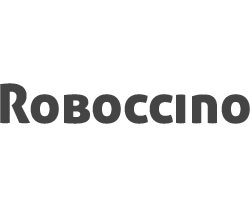Future Trends in Cafe Equipment Purchasing and How to Choose the Best Coffee Machine
While the café industry is changing, it is crucial to stay ahead of anticipated coffee equipment purchases for business viability. Of all the various tools needed to produce a good coffee experience, the coffee machine for a café is probably the most important. This equipment affects the quality of good beverages served, its good functioning on a profit margin, or the efficiency of serving customers. A knowledge of the latest technology and features offered in coffee machines will give café owners much-needed guidance toward purchasing decisions that best represent their brand identity and expectations of their clients.
Thus, this blog will go into emerging trends in purchasing café equipment with particular mention of the coffee machine for café usage. The article will discuss different technological innovations, sustainability issues, and consumer preferences driving the industry. By the time users finish reading, they will have plenty of information to select a coffee machine that suits their unique café needs and maintains their competitive edge in this ever-changing setting. With the right equipment, owners will be ready to elevate their offering and create a memorable experience for any coffee lover who walks through their doors.
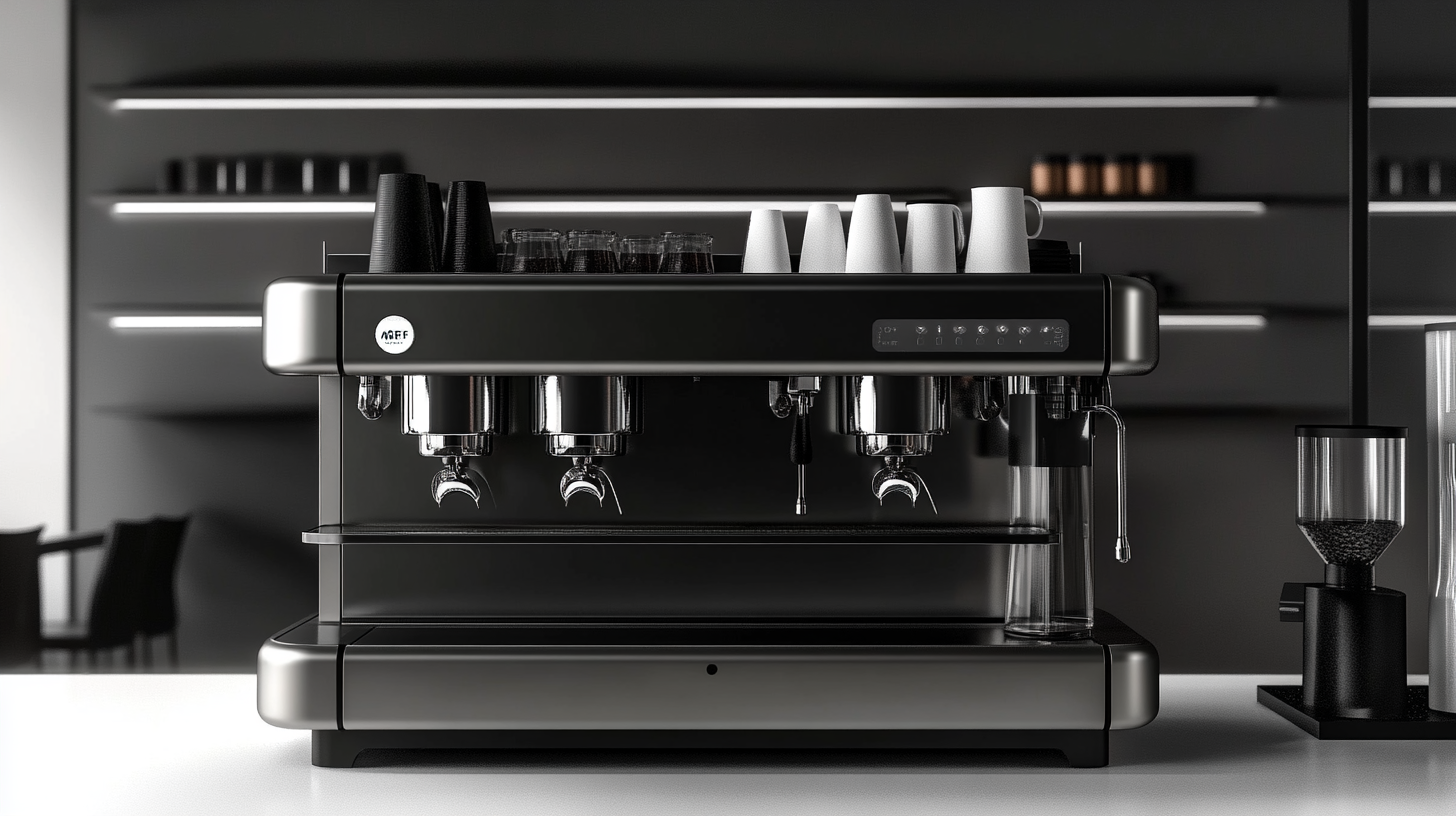
Future Innovations in Coffee Machine Technology: Trends to Watch
In this evolving landscape of coffee machine technology, there lay quite a few future trends that help decide the purchasing aspects for cafes or coffee lovers. The global coffee machine market is set to cross $6.6 billion by 2023, wherein the CAGR is greater than 5.5% in 2032, being on the back of innovation. The target consumer browse to technologically enhancing machines that produce the finest quality pourovers that evolve, as we do, into meeting these shifting lifestyles and preferences. Among them, the coffee machine innovations will most standout automation and smart technologies: The design of machines is moving from manual to fully automatic, with user-friendly UIs permitting customized brewing experiences. Connectivity with apps, programmable settings, and artificial intelligence integration are the imperative features, bringing cafes efficiency and adaptation to varied customer demands. A greater focus is also placed on energy-saving technology now that customers are going green-sustainability. Capsule and bean-to-cup machine products are released and promoted in the future based on the rising demand of coffee aficionados for convenience and satisfaction with quality. Even further, while espresso machines stir innovation in baristas experimenting with different ways of brewing, the growth and glamour of the global coffee market will suggest the necessity of acknowledging these trends to anyone interested in coffee machine investments and finding ways to meet their evolving clientele expectations.
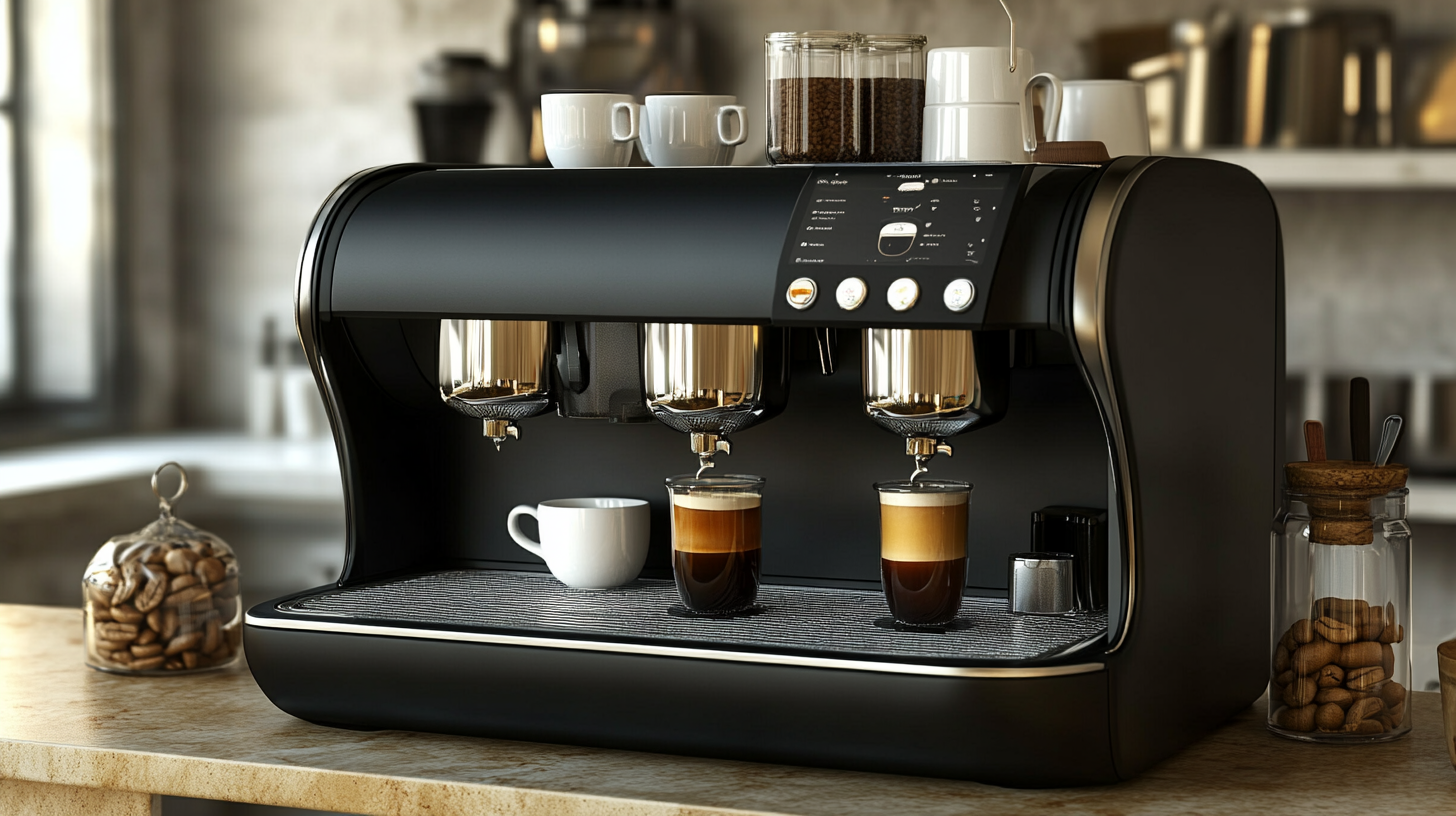
Key Factors Influencing Cafe Equipment Purchasing Decisions in 2024
In preparing to buy café equipment in 2024, many factors will strongly affect choices made by café owners and managers. Being aware of these factors may assist in ensuring that cafés remain competitive while also adjusting to consumers' changing demands.
One of the most serious issues considered is sustainability. As customers grow more conscious of environmental issues, they tend to choose cafés with energy-efficient machines and eco-friendly materials. Hence, café owners have to choose equipment that works well, but also for low-carbon-footprint purposes. Low-power-consumptive coffee machines that allow recycling of spent coffee grounds would be much desired.
Another factor is the integration of technology. The café atmosphere is increasingly becoming transformed by automation and smart technology. Equipment that will allow mobile ordering, payment solutions, and customer engagement to flow seamlessly will be necessary in 2024. Owners must look for machines with connectivity features whereby they can collect data on their customers' preferences and optimize their service.
Quality and durability also cannot be ignored. With the abundance of options available to the owner/operator, it is paramount, therefore, to find reliable equipment that will render a good performance and easy maintenance. Buying good machines may reduce long-term expenses, since they generally need fewer repairs and replacements, and, therefore, this consideration goes beyond just purchasing upfront costs and goes toward the overall experience of the customers; hence, it is a very strong motive behind equipment purchasing decisions.
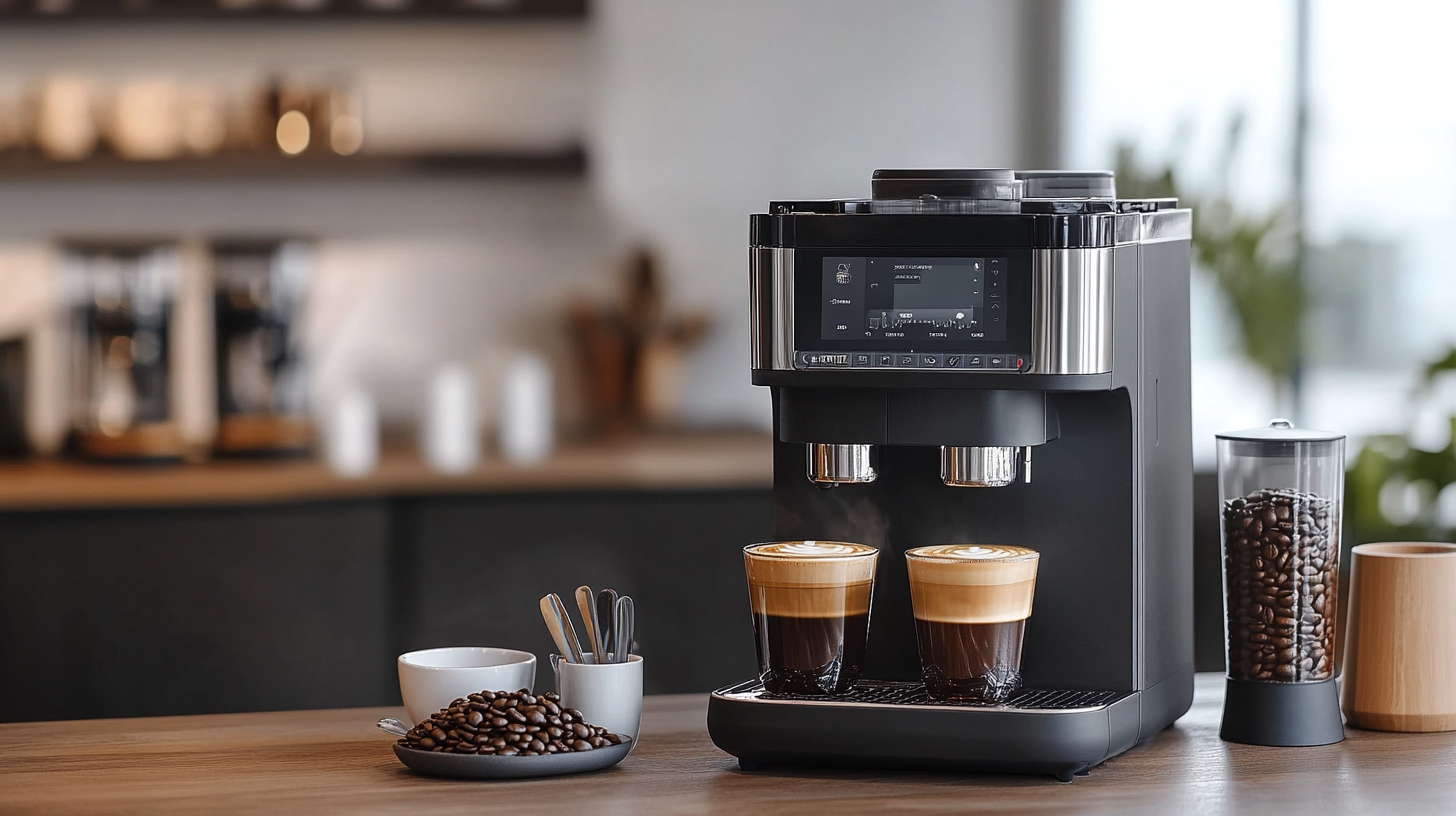
Sustainable Practices in Cafe Equipment: Choosing Eco-Friendly Coffee Machines
Sustainable practices are gradually gaining ground throughout the industry and cafes are also comparing factors such as eco-friendly equipment purchases. Energy-efficient machines in particular reduce carbon footprints while selecting the right kind of machines for coffee-making procedures in cafes. Therefore, check for Energy Star machines, which qualify under strict energy efficiency standards of the U.S. Environmental Protection Agency. These machines save energy as well as operational costs which are quite attractive to many cafe owners.
Again, elements used in the construction of coffee machinery interface with sustainability. Wherever applicable, conscious cafes will always try to procure machines made from recycled or sustainably sourced materials. One such good option is stainless steel, as it is durable and recyclable enough to withstand the demands of day-to-day applications and still be considered environmentally friendly. Consider water waste efficiency; some machines with advanced extraction technology minimize water usage while still achieving the quality of the brew unhampered by eco-friendly considerations.
Furthermore, support for sustainability in these businesses can often also be enhanced by giving preference to those manufacturers committed to the ethical and ecologically sound production of their equipment. Carrying out research into the product lifecycle of a coffee machine, as well as the environmental policies of the vendor, will help you understand how the production, shipping, use, and disposal of their product impact the planet. By embarking on its sustainability journey through equipment purchases, the cafes can address consumer expectations for green practices while aiding the development of a sustainable future for the coffee industry at large.
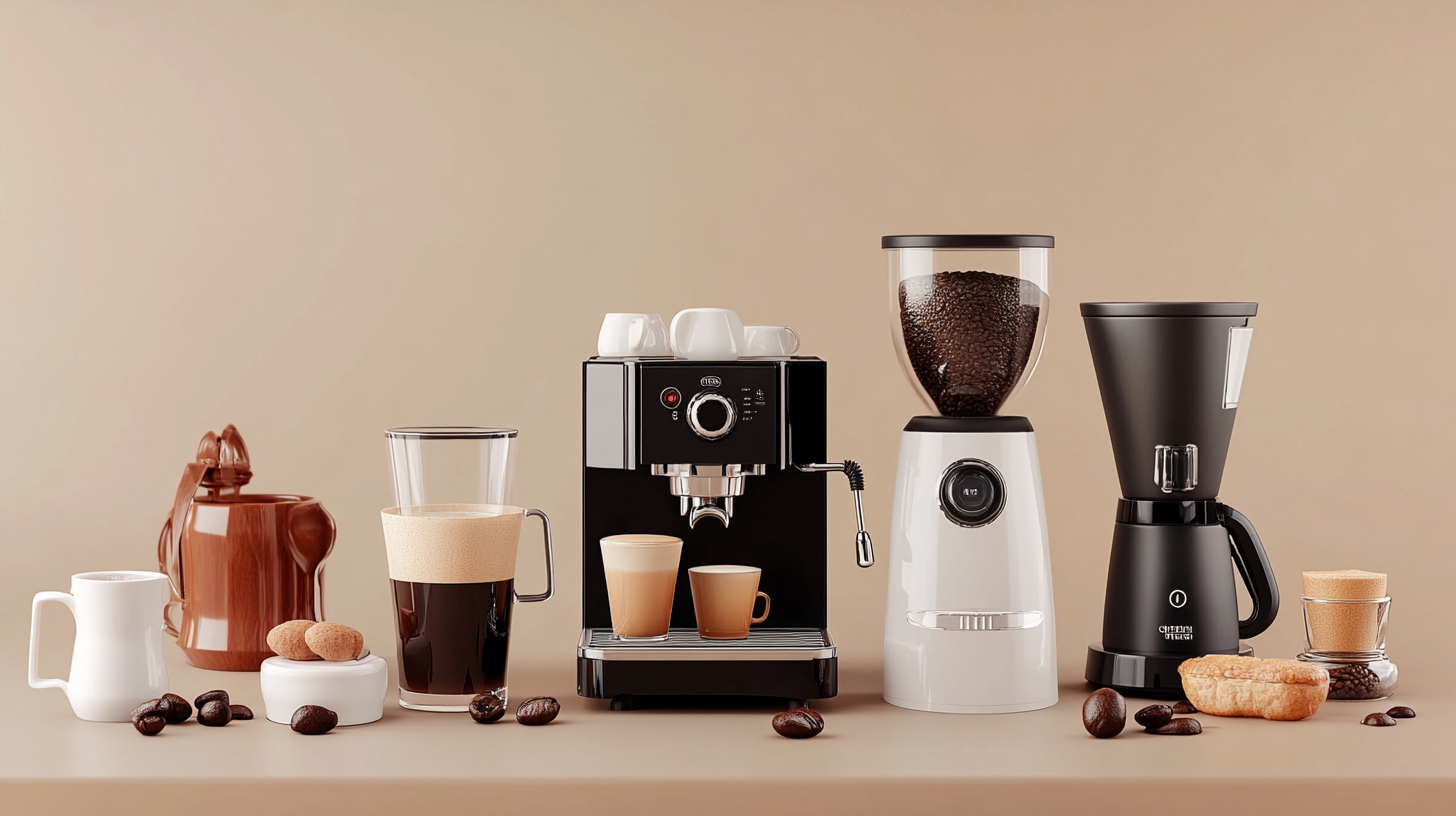
Navigating the Coffee Machine Market: Understanding Different Brewing Methods
The changing coffee culture makes it imperative for cafe owners to understand the various brewing methods available in the market before investing in the right coffee machine. Current industry reports project a growth of 4.9% CAGR from 2021 to 2028 in the global coffee machine market, dictated by an ever-increasing demand for specialty coffee and innovations in brewing. So, staying on top of everything becomes essential for cafe operators.
Among the many things to consider when shopping for a coffee machine is the brewing method-the styles that suit the very varied tastes that customers have when it comes to coffee. Drip coffee makers are an obvious go-to, providing a good quality reliance on an inexpensive basis. Spouts like espresso machines, pour-over systems, and cold brew dispensers are fast on the uptick in popularity, bringing out a different clientele. According to the Specialty Coffee Association, "approximately 60% of consumers now prefer to drink specialty coffee beverages," which is enough to bring in demand for high machine endowments capable of producing complex flavor combinations.
Additionally, the way each machine operates quite goes a long way in influencing purchasing behavior. For example, while espresso machines take up higher initial costs and skilled baristas for their operation, they also do higher margin drinks. In contrast, automated machines offer convenience and uniformity-they are set for high-traffic places. In a recent survey, 45 percent of cafe owners said that reliability of equipment is the most important aspect, leaving no doubt that investment in the right machine is a lot more than just the initial cost-it extends all the way to service quality and customer satisfaction.
Cost vs. Quality: Analyzing ROI for Your Coffee Equipment Investment
It is only very common that the pricing against quality is always the primal consideration of decision-making when investing in coffee machines or any equipment in a cafe business. According to the Specialty Coffee Association, a very good quality coffee machine has about a lifetime of more than 10 years, hence investment proves much more valuable if broken up over time. Generally, quality equipment has less breakdowns and lower repair costs, leading to much better overall return on investment (ROI) for the owners.
IBISWorld noted that the coffee shop industry is expected to grow at an annual rate of 2.2% through 2024. But the situation becomes more competitive, which therefore means a building a difference with quality coffee themselves. Coffee brewed using top-notch machines would make a whole lot of difference in terms of consistency and taste, which would then lead to satisfied customers who would keep coming back. According to a survey carried out by Technomic, 75% of coffee drinkers would come back to a café if they liked their coffee, thus revealing what machine quality has in terms of customer commitment.
The current trend viewing sustainability also becomes much more significant. Modern coffee machines boast devices to save energy and minimize waste, which also meets the demands of eco-conscious consumers. Cafes can achieve both long-term cost savings as well as appeal to a burgeoning segment of the consuming public who embrace sustainability by providing high-performance, eco-efficient equipment. While appraising equipment needs, consider upfront costs against the long-term value of that equipment for optimum returns from the investment.

